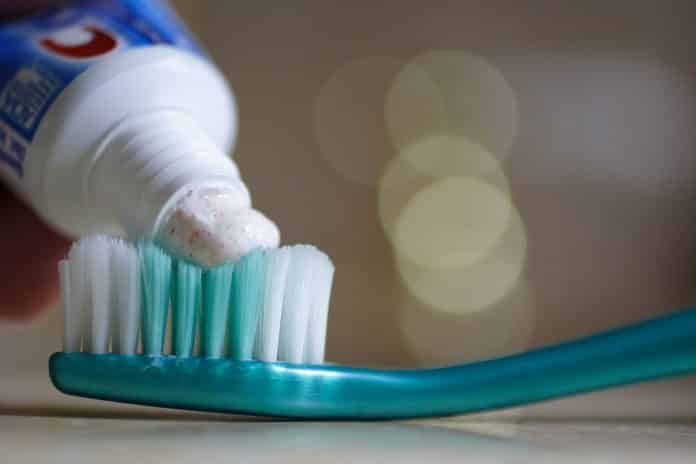Peptide-based Toothpaste Could Help Fill Cavities
As your hygienist probably told you, tooth decay happens when bacteria in plaque dissolve your enamel, creating cavities. Eventually the cavity gets big enough that your dentist has to take out the decay and drill a hole that can be filled with resin, gold or something else. But then, dentists could soon hang up these drills of theirs. Researchers at the University of Washington have developed a natural product of their own that may do the job.
“Remineralization guided by peptides is a healthy alternative to current dental health care,” said lead author Mehmet Sarikaya, professor of materials science and engineering and adjunct professor in the Department of Chemical Engineering and Department of Oral Health Sciences.
The new biogenic dental products can — in theory — rebuild teeth and cure cavities without today’s costly and uncomfortable treatments.
“Peptide-enabled formulations will be simple and would be implemented in over-the-counter or clinical products,” Sarikaya said.
Tooth enamel is produced by a type of cell called an ameloblast. These secrete the proteins that form enamel while the tooth is still in the gum. Unfortunately, once the process of forming tooth enamel is complete and the tooth has emerged
, our ameloblasts die off. But we continue to lose enamel throughout our lifetime.To a small extent, our teeth can be remineralised with the help of saliva, fluoride toothpaste and drinking water additives. But once there’s a visible cavity on the tooth, it needs to be treated by a dentist.
To develop their new treatment, the team turned to one of the proteins produced by ameloblasts. Called amelogenins, these proteins play a key role in regulating the formation of tooth enamel. The team captured the essence of amelogenin — a protein crucial to forming the hard crown enamel — to design amelogenin-derived peptides that biomineralize and are the key active ingredient in the new technology. The bioinspired repair process restores the mineral structure found in native tooth enamel.
The peptide-enabled technology allows the deposition of 10 to 50 micrometers of new enamel on the teeth after each use.
Once it is fully developed, the researchers believe the technology could be used in both private and public health settings, in biomimetic toothpaste, gels, solutions and composites as a safe alternative to existing dental procedures and treatments.
The technology enables people to rebuild and strengthen tooth enamel on a daily basis as part of a preventive dental care routine. It is expected to be safe for use by adults and children.

































Wht is the source of that peptide which used in toothpaste?